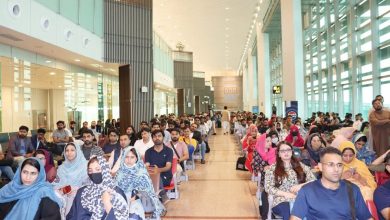Southeast Asia fears US neglect, ostracised Muslims and resurgent extremists as Israel-Gaza war rages on
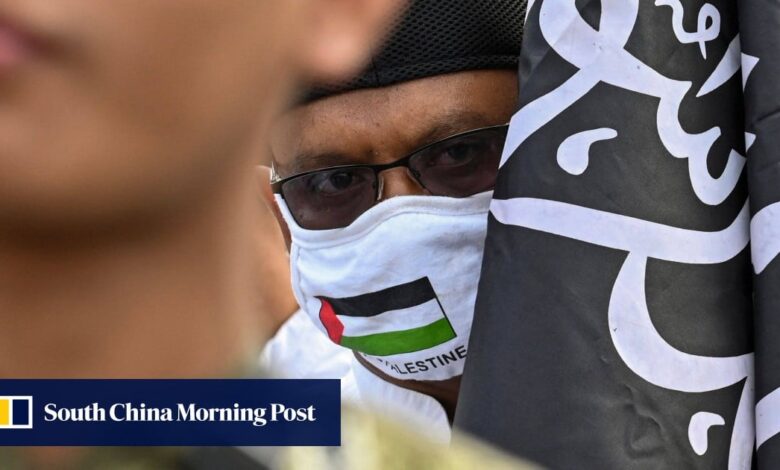
“This feels like 9/11 again. Hamas is equated with all Palestinians, and Palestinians with Arabs, and Arabs with all Muslims,” said Syaza Farhana Mohamad Shukri, an associate professor of political science at the International Islamic University Malaysia.
Mohamed Nassir, a Singapore-based scholar of inter-religous relations, said he hoped the current crisis would precipitate discussions on interfaith cooperation.
“Intercivilisational dialogue and understanding should be forged during times of peace to prevent colossal crises like what we are witnessing in the Middle East,” Nassir said.
Hundreds killed in Gaza hospital blast, Israel and Hamas trade blame
Hundreds killed in Gaza hospital blast, Israel and Hamas trade blame
Regional governments should be wary of posts on social media, in particular, that “amplify not just real news, but also disinformation and false narratives that seek to whip up popular sentiment”, he said.
This, according to Iftekharul Bashar, an associate research fellow at the RSIS’ International Centre for Political Violence and Terrorism Research, could result in a “new wave of Hamas-inspired radicalisation, attempts to travel to conflict zones possibly under the pretext of humanitarian activities [and] copycat attacks emulating that of Hamas”.
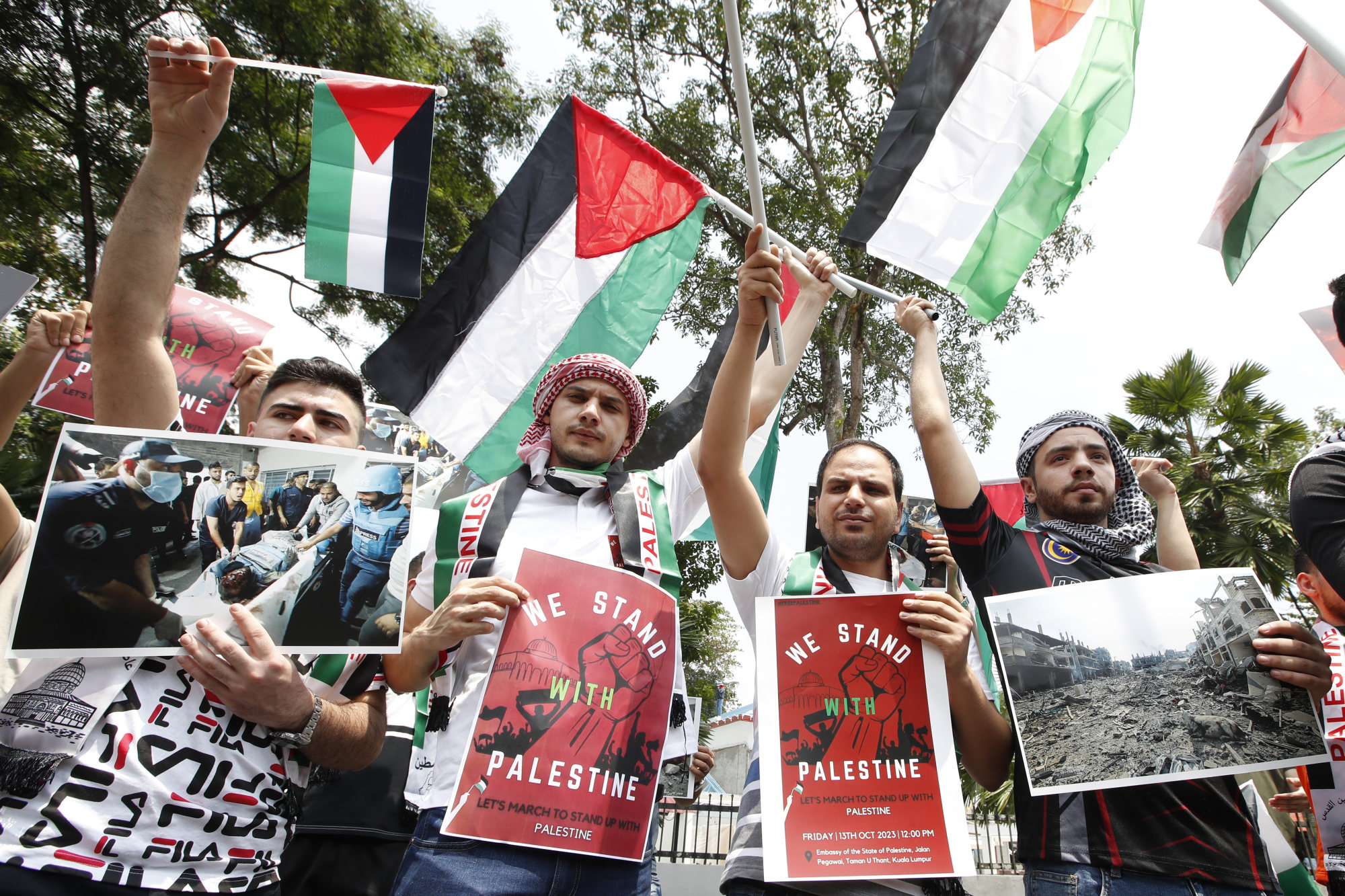
Divergent views fuel radicalisation fears
Last weekend, protesters in Indonesia and Malaysia gathered in large numbers to condemn the war and express their solidarity with the Palestinians. Both countries have also issued statements pointing to Israel being the “root cause” of a conflict whose origins stretch back decades, said Andreyka Natalegawa, an associate fellow at the Washington-based Centre for Strategic and International Studies’ Southeast Asia programme
“Divergences in how the US and Global South nations, including those in Southeast Asia, view and approach the crisis thus could impact Washington’s ties with key Asean member states,” he said.
Abdul Rahman Yaacob, a research fellow with the Australia-based Lowy Institute’s Southeast Asia programme, said the conflict had exposed a deep religious divide that could “boil over and threaten the social fabric” of the region.
I would not be surprised if Singaporean authorities are already in touch with potential targets, such as American and Israeli embassies … to beef up their security
“I would not be surprised if Singaporean authorities are already in touch with potential targets, such as American and Israeli embassies, and business and religious premises, to beef up their security,” Rahman said.
Noor Huda Ismail, a visiting fellow at RSIS whose research interests include jihadist networks and religious extremism in Southeast Asia, agreed that there was a risk of the conflict prompting a “resurgence of jihadist activities within the region” if it caused citizens to travel abroad to take up arms against a perceived enemy of Islam.
This had happened in past Middle Eastern conflicts, he said, with the jihadists often returning home radicalised and battle hardened, their heads filled with extremist ideologies that can be used to propagate further violence.
Though efforts have been made to counter the threat by strengthening border security, intensifying intelligence operations and promoting regional counterterrorism cooperation, Huda said “the persistent evolution of extremist tactics, combined with the volatile geopolitical landscape, underscores the need for continual vigilance”.
If the Israel-Gaza conflict were to expand in scope and duration, Zachary Abuza, a professor at the National War College in Washington who specialises in Southeast Asian politics and security issues, said an “invigorated” militant group might emerge.
“With a new issue to rally around, and with a charismatic leadership that can lead the next generation of global jihad, [this group would] inspire Southeast Asian militants for years to come,” he said.
No one expects a larger war in the Middle East, but then no one predicted this scale of an attack from Hamas either
Thomas Daniel, a senior fellow at the Institute of Strategic and International Studies in Malaysia who specialises in regional security challenges, said that by displaying “blatant double standards” towards the Israelis and Palestinians, the US and other Western countries risked undermining the influence and goodwill they enjoy in Asian nations with substantial Muslim populations.
“Especially if we see soaring civilian casualties, deliberate displacement and destruction of infrastructure … narratives on the West’s support of Ukraine for example, already shaky in Southeast Asia, will come further undone,” he said.
Given the Middle East’s importance as a source of investment, energy supplies and employment for huge numbers of migrant workers, Daniel said any expansion of the war would have inevitable implications on Southeast Asia.
“No one expects a larger war in the Middle East, but then no one predicted this scale of an attack from Hamas either,” he said.
Saudi Arabia getting closer to Israel normalisation, crown prince says
Saudi Arabia getting closer to Israel normalisation, crown prince says
Biden, in an interview with CBS News’ 60 Minutes earlier this month, was at pains to stress that the normalisation deal, under which Riyadh would be offered a defence treaty and help developing its own civilian nuclear programme, was not dead despite the escalating violence in and around Gaza.
If it does survive, it could allow “Washington to focus even more on the China challenge in Southeast Asia and the Indo-Pacific”, said Prashanth Parameswaran, a fellow with the Washington-based Wilson Centre think tank’s Asia programme.
A worrying US ‘shift of focus’?
Washington’s new preoccupation with another “intractable” Middle Eastern conflict was unfortunate in light of the Biden administration’s efforts to pivot more towards Asia, National War College’s Abuza said. Despite this, he predicted the US would continue to keep a focus on Taiwan and the Korean peninsula.
RSIS’ Ramakrishna said the US was unlikely to “pay a lot of attention to Asean” while a fresh conflict was raging in the Middle East “unless China does something really drastic in East Asia and the South China Sea”.
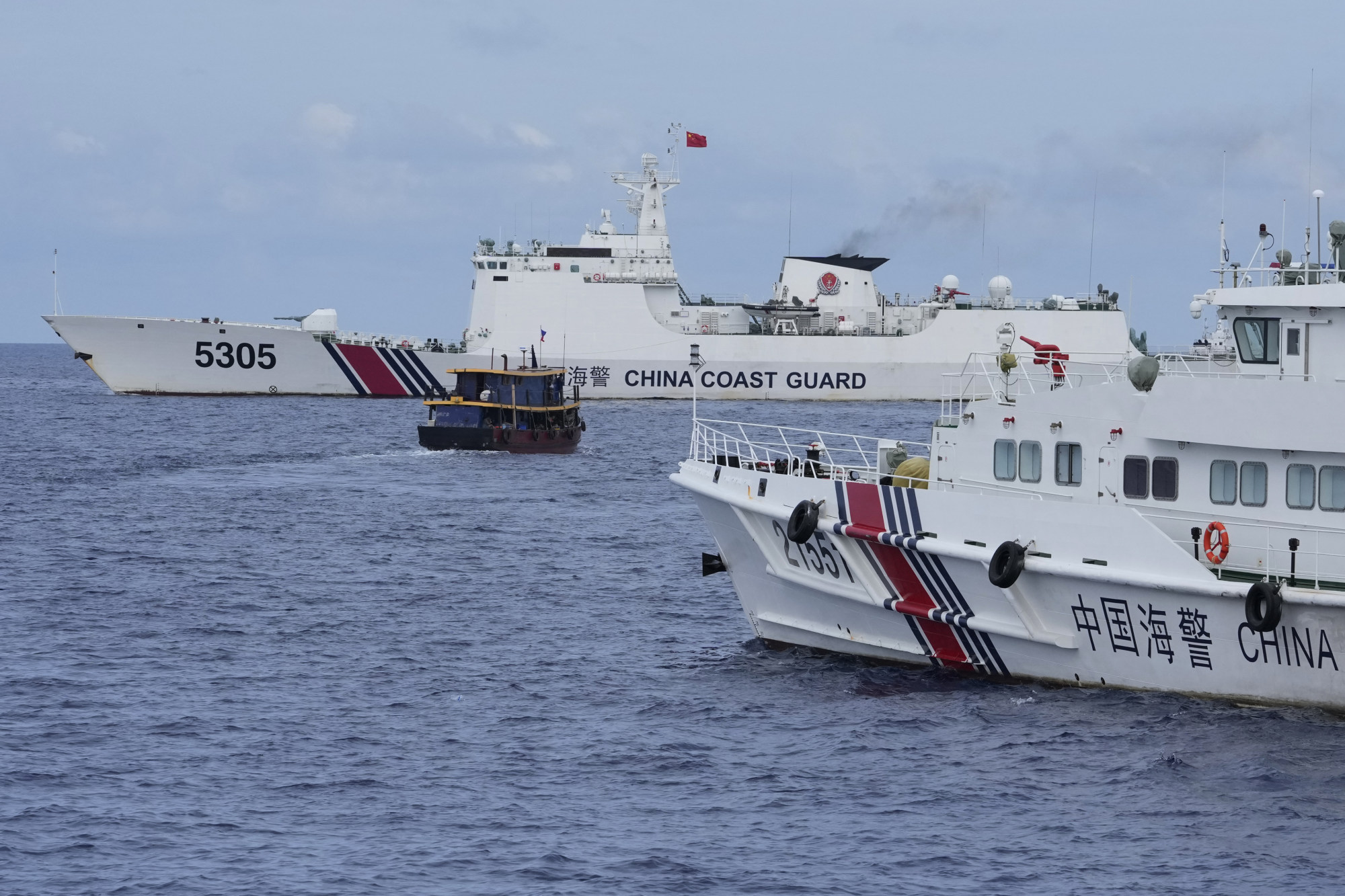
But such a scenario could yet play out, Rahman said, as Beijing was likely to “take advantage” of a distracted Washington to advance its own regional interests.
“This is an escalation as previous confrontations tended to be between coastguard vessels,” Rahman said.
Though Washington’s time and attention will increasingly be drawn to conflicts in the Middle East and Europe, “all is not lost” in terms of the US’ “intensive engagement” with the wider Asia-Pacific region, according to Brian Harding, a senior Southeast Asia and Pacific expert at the United States Institute of Peace.
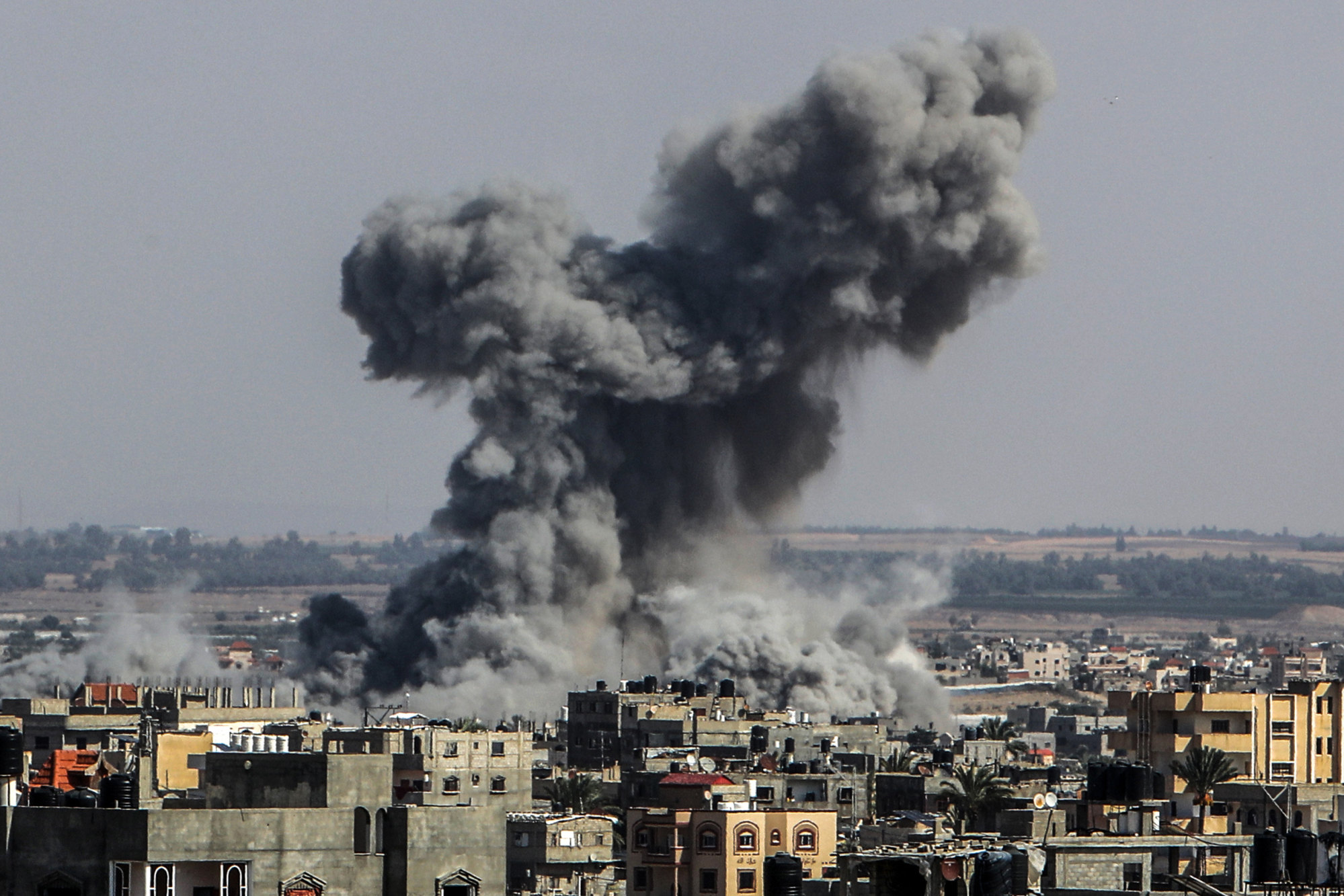
Indeed, very little could prevent Washington from pursuing its chief strategic goal of countering China, said Michael Vatikiotis, a senior adviser at the Switzerland-based Centre for Humanitarian Dialogue that works to prevent and resolve armed conflicts around the world.
Could the Israel-Gaza war become multi-front involving Iran and Hezbollah?
Could the Israel-Gaza war become multi-front involving Iran and Hezbollah?
Dylan Loh, an assistant professor of foreign policy at Nanyang Technological University in Singapore, predicted that the Israel-Gaza war would prove be a “short-term distraction” in the Middle East for Washington, noting that US officials were well aware of the perennial questions that surround American commitment to Southeast Asia.
“It’s not as if the US can only do one thing at a time,” he said.




